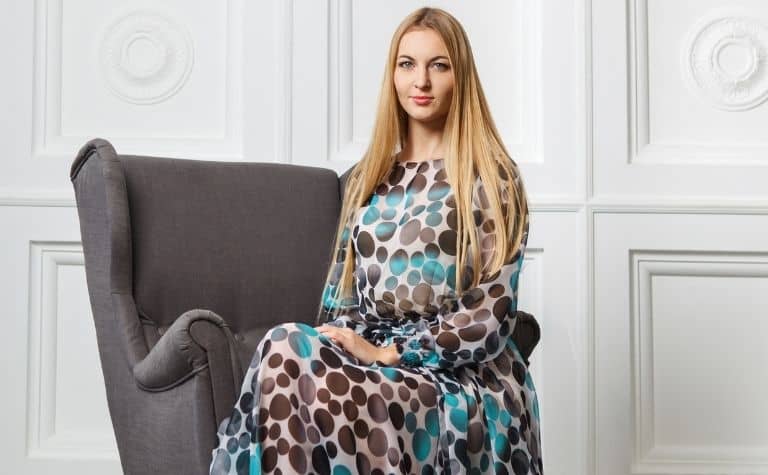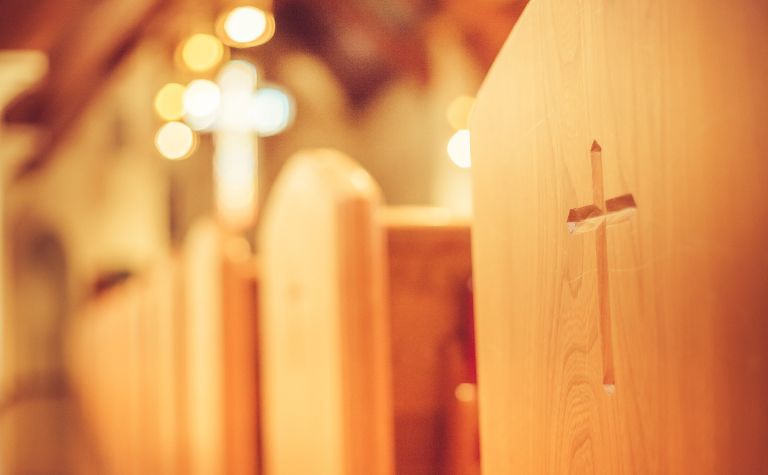United Pentecostals, also called Oneness Pentecostals, are known for their unique beliefs, such as their denial of the Trinity, which evangelical Pentecostals dismiss as unorthodox. A unique practice that United Pentecostals are known for is their conservative dress and appearance. So what is the basis for women in the tradition to wear dresses and skirts?
The United Pentecostal tradition believes that wearing dresses and skirts expresses modesty and holiness for women. Long dresses and skirts also express femininity and clearly distinguish between male and female genders. The length of the dresses and skirts and their fit reflect modesty.
Why do dresses and skirts reflect modesty and holiness to United Pentecostals? Do the passages and verses they cite to defend their beliefs mention long dresses and skirts? How do orthodox Pentecostals see United Pentecostals? Keep reading to learn the answers to these questions and others.
Also, see Pentecostal vs Oneness Pentecostal: What’s the Difference? to learn more.

Dresses and Skirts Reflect Modesty and Holiness to United Pentecostals
Are United Pentecostals Christians? Most Christians, including orthodox Pentecostals, don’t consider United Pentecostals Christians because the tradition denies the Trinity and insistence that full-immersion water baptism and speaking in tongues are necessary for salvation.
Aren’t United Pentecostals “Pentecostals”? United Pentecostals are “Pentecostal” in the sense that they believe that speaking in tongues is the initial evidence of baptism in the Holy Spirit.
However, the tradition’s denial of the Trinity contradicts the teachings of Scripture according to orthodox Christianity. Even for orthodox Pentecostals, unity in speaking in tongues isn’t enough to overcome disunity concerning the nature of God.
How do United Pentecostals arrive at their conclusions regarding dress? The United Pentecostal tradition argues that their interpretations of Scripture on all matters are literal, detailed, and correct.
In their thinking, if they interpret passages about baptism, for example, literally and in detail, they should take the same approach to passages that describe outward appearance.
Do the passages they cite mention long dresses and skirts? No. The passages that United Pentecostals often cite, written by Paul and Peter, mention modesty and holiness.
They also emphasize not being worldly in appearance. United Pentecostals apply the principles expressed in the passages, in part, by wearing long dresses and skirts.
“In like manner also, that women adorn themselves in modest apparel, with shamefacedness and sobriety; not with broided hair, or gold, or pearls, or costly array; But (which becometh women professing godliness) with good works.” (1 Tim. 2:9-10, KJV)
Don’t “worldly” people wear long dresses and skirts? Yes. However, United Pentecostals would say they aren’t like the world in wearing long dresses and skirts. Instead, the world is like them.
“Whose adorning let it not be that outward adorning of plaiting the hair, and of wearing of gold, or of putting on of apparel; But let it be the hidden man of the heart, in that which is not corruptible, even the ornament of a meek and quiet spirit, which is in the sight of God of great price. For after this manner in the old time the holy women also, who trusted in God, adorned themselves, being in subjection unto their own husbands.” (1 Peter 3:3-5, KJV)
United Pentecostals consider long dresses and skirts modest and holy, even though neither 1 Timothy 2 nor 1 Peter 3 mention them. The Bible mentions attire like women’s robes and garments, but modern dresses and skirts are the tradition’s application of the Bible and not based on a verse that specifically mentions them.
Also, see Do United Pentecostals Believe in the Trinity? to learn more.

Long Dresses and Skirts Reflect Femininity
The United Pentecostal tradition also considers dresses and skirts feminine. According to the book of Genesis, God made two genders. Each gender is unique, and people should not blur their distinctions.
“Then God said, ‘Let Us make man in Our image, after Our likeness, to rule over the fish of the sea and the birds of the air, over the livestock, and over all the earth itself and every creature that crawls upon it.’ So God created man in His own image; in the image of God He created him; male and female He created them.” (Genesis 1:26-27)
How does the world blur the distinction between genders? According to the United Pentecostal tradition, failing to recognize and live out the difference between male and female is wrong.
This fact relates to who a person dates and marries (United Pentecostals believe marriage is between one man and one woman), the mannerisms a person has, and their outward appearance.
“The woman shall not wear that which pertaineth unto a man, neither shall a man put on a woman’s garment: for all that do so are abomination unto the Lord thy God.” (Deuteronomy 22:5)
The basis for Deuteronomy 22:5 is Genesis 1:26-27. God created people as either male or female, and people should live according to their gender. This belief includes physical appearance.
Also, see the full article Why Don’t United Pentecostals Wear Makeup or Jewelry? to learn more.

Why Do United Pentecostal Women Have Long Hair?
United Pentecostal women have long hair because Paul mentions it in 1 Corinthians. Most Bible readers believe Paul’s words pertain to the original first-century readers of the letter. While the principles of modesty and holiness apply today, the exact hairstyle Paul mentions isn’t necessarily relevant.
“Doth not even nature itself teach you, that, if a man have long hair, it is a shame unto him? But if a woman have long hair, it is a glory to her: for her hair is given her for a covering.” (1 Corinthians 11:14-15)
What about braiding long hair? United Pentecostals believe women shouldn’t braid their long hair because Paul discourages it. Furthermore, most Bible scholars believe that prostitutes in the first century wore braided hair, so Paul is encouraging the original readers not to have the same look as pagan women who sold the use of their bodies to others.
“In like manner also, that women adorn themselves in modest apparel, with shamefacedness and sobriety; not with broided hair, or gold, or pearls, or costly array.” (1 Timothy 2:9)
See the full article Why Do United Pentecostal Women Have Long Hair? to learn more.
Rules for Modesty in United Pentecostalism
The six rules below ensure that United Pentecostal women comply with biblical teaching on outward appearance.
1. Modesty
2. Moderation in cost.
3. Inclination toward godliness (decency).
4. Avoidance of outward adornment.
5. Shamefacedness and sobriety.
6. Distinction between male and female.
Please see the related articles below.
References:
[1] Source
[2] Source
Related Articles
Pentecostalism vs. Charismatic Movement: What's the Difference?
Many people know that the terms "Pentecostal" and "charismatic" are associated with certain beliefs, churches, and people in modern Christianity but aren't sure how they compare. Although the terms...
Many people know that the terms "Pentecostal" and "evangelical" are associated with Christianity, but they aren't sure exactly how or what the difference is between them. The words may refer to a set...
